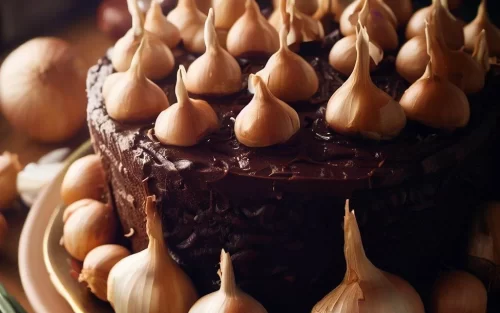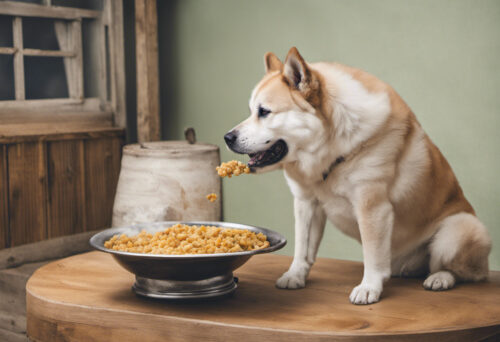When it comes to maintaining the health and vitality of your beloved Scottish Terrier, their diet and nutrition are one of the topmost priorities to consider. This feisty and bold breed of pooches requires the right blend of nutrients, vitamins and minerals to avoid health issues and ensure their optimal development and longevity. In this write-up, we delve deeper into the world of Scottish Terriers – specifically their dietary requirements – to help you comprehend your canine comrade’s culinary needs better.
Understanding the Scottish Terrier’s Dietary Needs
Scottish Terriers, or Scotties, as they are often fondly referred to, have a robust, muscular build, proving right the old saying “great things come in small packages.” With their high energy levels and unique bodily structure, their dietary needs differ significantly from those of other breeds. The ideal diet for a healthy Scottish Terrier fully takes into account their size, age, weight, and activity level.
Energy-Dense Foods for Active Scotties
To keep up with their lively and active nature, Scottish Terriers require foods that are high in good quality proteins and fats. Proteins play a significant role in muscle development and tissue repair, while fats provide the much-needed energy. Whole meat such as chicken, beef, or fish and nutritious grains like brown rice or barley are great choices when considering a nutritious meal for your Scottie.
Addressing Special Dietary Needs of Scottish Terriers
Like every dog breed, Scottish Terriers have their specific health concerns that can be proactively managed with an appropriate diet. Several Scotties suffer from certain types of allergies and adrenal problems, which require careful consideration when planning their meals. Navigating through these special dietary needs can be trickier than walking your Scottie on a windy Scottish moor – but don’t worry! We’ve got you covered.
Managing Allergies
If your Scottie has to follow a hypoallergenic diet, the food options might seem limited initially. However, with a bit of research and guidance from pet nutrition professionals, it’s possible to provide your furry friend with meals that are both nutritionally balanced and safe for them. Grain-free diets or single protein source meals are often the best choices for dogs with allergy issues.
Nutrition for Adrenal Health
Scottish Terriers, unfortunately, are more prone to developing adrenal disorders like Cushing’s disease. A well-balanced diet rich in omega-3 fatty acids, low in fats, and filled with wholesome grains can play a role in preventing and managing adrenal disorders. Incorporating fish oils, flaxseed, or meals rich in antioxidants such as sweet potatoes or carrots in your Scottie’s diet can do wonders.

What to Feed a Scottish Terrier Puppy?
Puppyhood is a critical stage in a Scottish Terrier’s life. Puppies require a diet packed with essential nutrients to support their rapid growth and development. High-quality, commercial puppy food that is specially formulated for small and medium breed puppies can be an excellent choice. The food should be rich in proteins and fats to aid in their physical development and high energy needs.
Gallbladder Issues and Diet
Scottish Terriers are also predisposed to gallbladder problems like gallbladder mucoceles. Feeding your Scottie with a diet low in fat and high in fiber can help manage this health condition. A diet rich in fiber promotes better digestion and prevent bile from accumulating in the gallbladder, thereby minimizing the risk of developing gallbladder mucoceles.
How Often Should a Scottish Terrier Eat?
The number of meals a Scottish Terrier has in a day depends on its age. Puppies up to six months old may eat four meals in a day, while puppies aged six months to one year may eat two or three meals in a day. Once your Scottish Terrier is over one year, they should move onto one or two smaller meals per day. Regular meal times not only aid digestion but also establish a comforting routine for your Scottish Terrier.
Hydration is Key
Our final pointer has less to do with food and more with water, but it’s just as important. Hydration is a critical aspect of your dog’s overall health. Ensure that your Scottish Terrier always has access to fresh, clean water. It aids in digestion, maintains body temperature, and helps transport nutrients around your pet’s body. Water, while not technically food, should definitely be part of their diet!
Understanding and Respect the Uniqueness
Just like us humans, no two Scottish Terriers are entirely alike. Each has their unique dietary preferences and needs. Paying attention to how your Scottie responds to certain foods, understanding their specific health requirements, and most importantly, providing them with a balanced diet can ensure that your canine companion has a fulfilling, healthy, and long life. After all, they’re not just pets; they’re family!

How to Create a Balanced Meal Plan for Scottish Terriers
Planning a balanced meal for your Scottie might seem like a puzzle, but it’s actually quite simple. A balanced meal for your Scottie should constitute appropriate portions of proteins, carbs, fats, vitamins, and minerals. Feeding them a diet that includes a variety of ingredients, such as meat, vegetables, and grains, can provide this balance. Check out AKC’s guide on how to create a balanced diet for a healthy dog life.
Homemade vs. Commercial Diet: Which One to Choose?
While commercial pet food, which comes in kibble or canned varieties, offer a convenient feeding option, homemade meals give you control over what’s in your Scottie’s diet. But it’s important to remember, serving your Scottie scraps from your own meal is not recommended. Relying on trusted resources like DogFoodAdvisor for the best commercial brands or a detailed meal plan for homemade food can be beneficial.
Treats for Scottish Terriers: Make or Buy?
You can definitely spoil your Scottie with healthy and tasty treats from time to time! Healthy treats are a fun way to reward good behavior and supplement their nutrition. While there are plenty of healthy commercial treats available in the market, you can also consider preparing homemade goodies like peanut butter biscuits or apple slices.
Avoid Desperate Measures: Steer Clear of Harmful Foods
Despite their hearty appetite, not all human foods are suitable for Scottish Terriers. Foods like chocolate, grapes, onions, and caffeine are extremely toxic for them. Access to lists of harmful foods can help you avoid accidental poisonings.
Beware of Overfeeding and Obesity
Few things are cuter than a chubby Scottish Terrier. However, it’s important to keep your Scottie’s weight in check. Obesity can lead to various health issues such as diabetes and orthopedic problems. Keeping a check on dietary standards and guidelines can help maintain a healthy weight for your pet.
The Takeaway Message
Providing your Scottish Terrier with appropriate nutrition isn’t rocket science, but it does require some knowledge and understanding of their unique dietary needs. Remember, each Scottie is unique and one-size-fits-all isn’t a strategy here. Consultation with a trusted vet or a certified animal nutritionist can also be beneficial. They can provide guidance based on an individual analysis of your Scottie’s health, lifestyle, and preferences. By taking these steps, you can help your Scottie enjoy a long, healthy, and happy life with the best diet and nutrition. Cheers to blissful years with your beloved Scottie!



